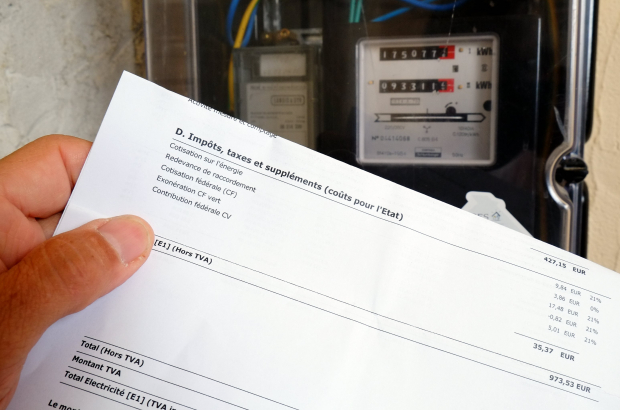- Daily & Weekly newsletters
- Buy & download The Bulletin
- Comment on our articles
Increases in gas and electricity prices raise concerns among Belgian consumers
The rise in gas and electricity prices in Belgium over recent months has begun to put a strain on some households. The increases have raised concerns and many questions, such as which households will have to pay more and when, what the impact will be on the different types of contracts, fixed and variable, and whether households will have to change their existing contracts.
The CREG, the Commission for Electricity and Gas Regulation in Belgium, recently looked at the evolution of electricity and gas prices over the recent months and came to the conclusion that the rise in prices is expected to continue this winter while a lull is expected in the spring with a likely decrease in prices next summer.
In wholesale markets, up to September 2021, prices reached historically high levels. Gas prices are rising due to increased demand in some countries, such as China. This increase in gas prices affects electricity prices since electricity producers also need more and more gas.
So, what will be the impact on the energy bills of Belgian households? According to the CREG, it all depends on the type of contract a household has subscribed to. Either the contract is variable, or it is fixed. In Belgium, 68% of households have a fixed contract for electricity and 64% for natural gas. For professional customers, the figures are about the same.
The most significant impact of the price increase will be on variable contracts. The CREG estimates, on the basis of the average prices for September 2021, and taking into account that these remain unchanged in the fourth quarter of 2021 and the first quarter of 2022, that the impact would amount to €116 on an average annual electricity bill (3,500 kWh/year) and €598 on the annual natural gas bill (for a consumption of 23,260 kWh/year). These amounts could be even higher if gas and electricity prices continue to rise.
Gas and electricity suppliers will also pass on increases in electricity and gas prices to customers' interim bills.
The impact will be more limited for the beneficiaries of the social tariff, thanks to the capping system. The social tariff allows beneficiaries to pay 67% less for their natural gas than the average price offered to unprotected consumers and remains below the level it had before the coronavirus crisis.
Similarly, the social tariff allows beneficiaries to pay 29% less for their electricity than the average price offered to non-beneficiary consumers, but it has exceeded its pre-crisis level since the first quarter of 2021.
For fixed contracts, nothing is likely to change immediately. The CREG states that those who had agreed a fixed long-term contract before the second quarter of 2021 will not be affected by an increase in the bill until their contract has expired.
In other words, if you have a fixed contract, you currently pay a provision each month, based on the estimate of your consumption. The price of the kWh of electricity or the gas usage is set in your contract and will not vary. Your annual statement may vary only if your consumption has increased and will be charged at the price provided for in your fixed contract.
However, it has been reported that energy provider Mega has increased its prices on fixed contracts, leading to around 150 complaints to the ombudsman. Mega claims that the larger bills are actually a consequence of higher consumption, mainly due to the remote working situation during the health crisis, not a reaction by the company to the higher prices for gas and electricity.
So, what if the fixed contract expires in the coming months?
A fixed contract customer has the guarantee that the price of their gas or electricity usage will remain the same until the end of the contract. On the other hand, there is no guarantee that this customer will find such favourable or more favourable conditions at the time of renewal of the contract.
With the ongoing price increase, it is very likely that the pricing conditions of the fixed contracts that will be concluded this winter will be less advantageous. At that time, for customers facing a contract renewal, comparing contracts and calculating will be useful. As a reminder, this summer, in July, the CREG advised against signing fixed contracts, given the high level of tariffs.
The CREG reminded the public that the consumer always has the right to terminate their contract, with a notice of 30 days. Nothing would prevent, for example, a customer who opted for a certain provider this winter to decide later, when the tide has turned in the spring, to change supplier or tariff formula.
The main weapon of households to fight against high energy bills remains to compare prices and change contracts when it is useful. The various regulators in each region - in Brussels, it is Brugel - offer comparison services. This is also the case for the CREG.
The other tip is to consume less. "A kWh not consumed should not be paid: try to reduce your consumption," recommends the CREG.
The consumer can also anticipate potentially higher settlement bills by increasing monthly down-payments. This does not change the amount of the overall bill, but it allows you to have less to pay at once at the time of the annual statement.















Comments
I just looked at my annual electricity bill. On top of the price of the electricity and the network to bring it to my place, there are also different fees imposed by the government: green certificates, fees of all sorts.
Now, what I find outrageous is that those fees are subjected to a 21% VAT. It's normal to pay VAT on my electricity, but paying a 21% tax on another tax is crazy. Taxes are taxable? Only in Belgium...